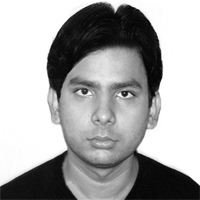


Abhishek Bhagat from rural Bihar developed an automatic food-making machine after he had to regularly chip in with the cooking at home. Robocook, as he calls it, is being further modified for commercial production. Abhishek received the Rashtrapati Award from the Indian President, Smt. Pratibha Patil, this year for his innovation.
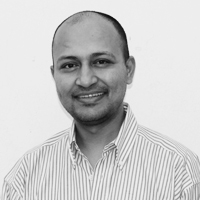


Anupam is best known as the man behind India’s biggest viral sensation – The Fake IPL Player. He has gone on to start Pitch Invasion as an alternate, interactive online live cricket commentary platform. An entrepreneur for 9 years in areas ranging from sports documentaries, marketing consulting, marketing communications, online social media marketing, and sports media, Anupam is also the author of a best-selling novel, and a general prankster.
Anupam recently launched Scoryboard.com, which is fast becoming the most popular product for live cricket updates on-the-go.
BOOKS: The Gamechangers
WEBSITE: Pitch Invasion, The Fake IPL Player , scoryboard.com
TWITTER: @_fakeiplplayer
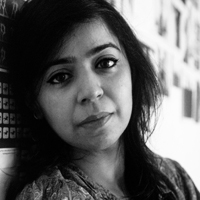


Anusha Yadav is a documentary photographer based in Mumbai. She is also the Founder of Indian Memory Project – an online project that traces a personal history of India through pictures found in family archives. It aims to become India’s first open repository of a visual history made by its own people.
Anusha Yadav graduated in Communication Design from National Institute of Design, Ahmedabad in 1997. Yadav’s interest in photography began while still at design school. Subsequently, she attended University of Brighton to study photography for a semester.
After fifteen years of a successful career in graphic design and advertising, Yadav began working as an independent documentary photographer in 2006 in Mumbai, India. Since then she has photographed several significant events and personalities all over the country.
Yadav has exhibited at the NCPA Gallery in Mumbai, Vadehra Gallery- New Delhi, Tasveer Gallery – Bangalore, Art Motif Gallery – New Delhi and Her series on Portraits of a City – Salzburg, was exhibited as Public Art on the Banks of the River Salzach, Salzburg, Austria and produced as a book in July 2010. The show was redisplayed at Dhoomimal Art Center, New Delhi in March 2011 and is on show at the Austrian Cultural Forum until March 2012. Yadav’s next show will be on display at the UC Davies, UCLA in California, USA in November 2011 and then again at March 2012.
Her photographs have featured in publications like Shots Magazine [UK], Slanted [Germany], Verve, Femina, The Sunday Guardian, Mid Day, Times of India, Asian Photography, Mint Lounge, Hindustan Times and CNNgo.com, Dezineconnect.com, Masala Chai among others.
Yadav is also the Founder of Indian Memory Project – an online and social archive to trace a personal history of India, through pictures and narratives found via family Albums & Archives. The first of its kind, she considers it to be one of the most incredible archives available online. Yadav currently works in India and sometimes the rest of the world.
WEBSITE: The Indian Memory Project, Anusha Yadav Photography
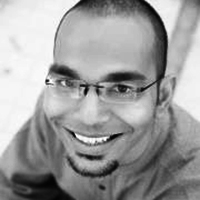


It’s neither jamming on the flute nor building India’s first humanoid that truly defines Arpit Mohan; it’s the drive to solve hard real-world problems. Today, this recent graduate from BITS-Pilani spends his time as a co-founder at Gharpay, applying technology to transform the way people transact online.
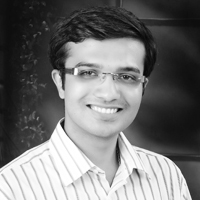


Born into a middle class Bengali family, Budhaditya Chattopadhyay was just 15 when he accidentally thought to create an artificial kidney. In 2007, Chattopadhyay’s research on TAK (the artificial kidney) was published in Oxford Journal, and in 2008, was recognized by the Patent Cooperation Treaty (PCT). Chattopadhyay is now the founder of IDEAL ORGAN and Elixir Excellenza, and co-founder of several multinational ventures with several IPs already in the market.
Chattopadhyay was born in a middle class Bengali family. When he was in high school class IX; a close relation of his passed away accidentally in renal failure, even after having had a renal transplant. Consequentially, Chattopadhyay became interested in the types of treatments available for kidney failure patients.
Chattopadhyay was studying in Ramkrishana Ashram those days. He was a great fan of the Discovery Channel. After some research he soon discovered that renal failure treatments are all the same: Hemodialysis; Peritoneal Dialysis and HLA matched Kidney transplant. So Chattopadhyay decided to devise a treatment which would filter blood like a natural kidney.
Chattopadhyay devised a machine called the Transplantable Artificial Kidney (TAK); which can be implanted in the body. Chattopadhyay devised a prototype, and also conducted several simulations with very satisfactory results. Chattopadhyay was very fortunate to receive World Bank funding through SPFU-NPIU-Karnataka via his college for conducting research and to protect his IPs.
Chattopadhyay published first in the Oxford NDT Journal when he was in the 2nd year of his Medical Electronics Engineering degree. He received funds from his university (VTU) to present the same at the ERA-EDTA Conference Stockholm, Sweden. Chattopadhyay received much recognition and many MNCs came to take the patent applied innovation to the next level. He also got some funding from a VC based in Bangalore; and started a company called Ideal Organ Pvt. Ltd..
Slowly Chattopadhyay realized that a problem existed with Doctor-to-Patient ratios that should be fixed. So he devised a product called Home Dialysis Equipment. This user-friendly product can be monitored by a doctor remotely. And the doctor similarly can monitor 10 patients at a time and, if needed, can even control the parameters. The Home Dialysis Equipment is in the market now.
Chattopadhyay also devised a machine which cleans the membranes and increases the efficiency of membranes (also already in market). His aim was to take OPD and Hehab centers from hospitals to rural kiosks, and so Chattopadhyay created a mobile dialysis van. As per a time schedule the van moves from one village to other one. In this pilot project Dialysis became eco-effective (Rs.400/session in villages in West Bengal) and can reach 8 patients daily on average. It’s also having an ICT enabled mechanism that allows patients to speak with doctors directly and get their consultations without physically meeting them. So using this Chattopadhyay could take little portion of a hospital to the doorstep of patients; instead of forcing a patient to come to a hospital.
Chattopadhyay is now pursuing his MPEFB in IIM Bangalore.
PERSONAL JOURNEY:
I must mention about my presentation at ERA-EDTA Congress Sweden regarding TAK; as prior to that I used to be considered a junk mad fellow. This gave me a very good platform for doing everything. But prior to all these I visited rural India from childhood and learned that no light of healthcare could have touched these areas. I visited several hospitals, even renowned ones like AIIMS-New Delhi. I saw there patients lying on the floor or even on roads at hospital premises and no treatments available for them as they are not hospitalized ass no more beds available. Then I decided to take hospitals to the doorstep of patients.
I also believe education systems must be changed in India. I am not a great meritorious student; but I believe professional courses like Engg., where we study so many subjects without even having any link of understanding and why should we learn the subject; must be changed. It should be something related to the applied field else it becomes like learning history.



Charles Ma was initiated into the sacred world of Bharatanatyam under Guru Smt.Vidya Shimladka. His dance stands out for its distinct individuality, personality and control. Charles is also a contemporary choreographer and teacher. He believes that dance is sacred and the essence of his dance is a deepened spirituality and respect for its tradition and aesthetics.
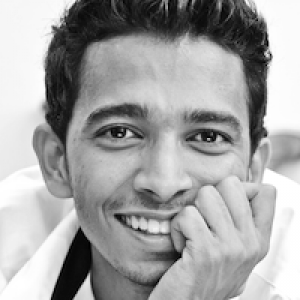


Deepak Ravindran is the Founder and CEO of Lookup, a free and secure messaging app that connects shoppers with local businesses. A serial entrepreneur, Deepak has founded three mobile messaging companies in a decade: Innoz, Quest and Lookup. A 2011 INK Fellow, he has been recognized as one of the outstanding innovators under 35 by the MIT Technology Review and one of Asia’s 21 emerging leaders under 40 by the Asia Society. Recently, Business Insider described Deepak as the “Mark Zuckerberg of India”.
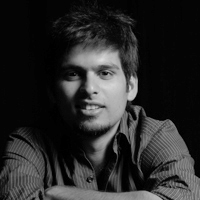


Harvard and Singularity University trained social scientist and futurist, Dhaval Chadha is a co-founder and Partner at Cria, an innovation consultancy and accelerator focused on creating shared value businesses. In its first year of existence, Cria has worked with clients such as Coca Cola, Whirlpool and the Museum of Tomorrow (to be launched in Rio in 2013) on projects ranging from innovation to scenario planning.
Chadha previously worked as Manager of Innovation at CDI, one of Latin America’s leading non-profits focused on taking technology to low income communities. In his role at CDI, Chadha led partnerships with Google, Ashoka and the Motorola Foundation among others. He also helped bring to life a consulting division and CDI LAN, one of Brazil’s leading social enterprises. During his time at CDI, Chadha was a guest blogger on Social Edge, the Skoll Foundation’s social entrepreneurship portal.
In addition to Cria, he is a mentor for the social innovation accelerator TechoLab, a part of the Sandbox Network and have curated TEDxSudeste, the second TEDx event in Brazil. Chadha attended both Harvard and Singularity University on full scholarships. He was selected as a Benjamin Trustman fellow at Harvard for showing outstanding promise and was featured on the cover of The New York Times in his senior year of college for leading the charge for career service reform.
PERSONAL JOURNEY: Growing up across the street from one of the largest slums in India meant that I was exposed very early to the reality of class borders. Innocence and privilege kept me from challenging the status quo until I had the chance to study at the United World College of India. The strong focus on community service and international affairs there helped ground my belief in a better and more ethical world.
At Harvard, I encountered something different. I was constantly challenged to defend my world-view and decided to major in an interdisciplinary track that allowed me to study a substantial amount of ethical and political philosophy, as well as spend five months in the field in Brazil. From Smith to Nietzsche to Nagarjuna and Krishnamurthi, I read all kinds of ethical and continental philosophy that I could get my hands on and even travelled to northern India to teach English and spend time with Tibetan monks.
In my senior year, I wrote my thesis on the idea and practice of a solidarity economy and was one of three undergraduates accepted to study in a graduate course in political philosophy with Amartya Sen, Philippe Von Parijs and Michael Sandel.
As I prepared for the post-college life, I was very underwhelmed by career services at Harvard which seemed to focus almost exclusively on jobs in finance. Reform was required and so while I studied community organizing methods, I began to apply them to mobilize students and the media to help create change. Our efforts were successful leading first to a cover story in the New York Times and then to the complete overhaul of career services at Harvard College to better attend to students looking to work in public service, non-profits, science and technology and media and the arts. Following the success of the project, I was nominated for the Paul Revere Frothingham Fellowship for excellence of character.
Upon graduation, I moved to Brazil to work at CDI. My time managing innovation at this fast paced social enterprise turned into another fabulous learning experience. Two years after having joined as an analyst, I emerged confident and eager to create something new, scaleable and purposeful.
What followed was the chance to curate a TEDx conference in Rio, and a graduate studies program focused on harnessing technology to solve humanity’s grand challenges at Singularity University in Silicon Valley. On my return to Brazil, I co-founded Cria with my amazing partners Fred Gelli and Florencia Estrade.
My time at Cria has been my first real experience as an entrepreneur and only now do I understand what this term means. The past year has demanded more humility, responsibility and multi-tasking than I thought I was ever capable of. Hopefully my learning journey will continue to be as rich and intense as it has been so far.
WEBSITE: Cria Global
FACEBOOK: Cria Facebook page; Dhaval Chadha Facebook page
TWITTER: Cria Twitter feed
INTERESTING FACT: I played tabla and drums in a fusion rock band in college that won a city wide battle-of-the-bands competition.
Talk(s) by Dhaval Chadha
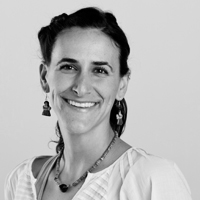


Dina Buchbinder Auron has introduced an innovative, action-oriented education model, called Deport-es para Compartir, to a Mexican education system that has long struggled with passivity and rigidity. Deport-es para Compartir empowers teachers from a variety of school settings to foster social and environmental awareness while also teaching values such as teamwork and fair play.
Dina Buchbinder Auron is a 29-year-old Mexican woman. She is currently the Director of the United Nations Youth Association in Mexico and Founder and Director of the program Deport-es para Compartir (Sports to Share).
She studied International Relations at ITAM University in Mexico City. She speaks 5 languages: Spanish, English, Italian, French, and Hebrew.
Since early in her childhood, Auron has always been committed to social causes. She started as a volunteer when she was 12 years old at KADIMA (a center for disabled children), and afterwards she volunteered for Oxfam. Aware of the importance of getting involved with her community, Auron has been active in supporting projects related to education, health, migration, gender, the environment, and sustainable development. Examples of this are her participation in organizing the Jewish Week at ITAM University, putting on the simulation of presidential elections, and presenting to students the “De Nadie” documentary about migration on the southern Mexican border.
Auron was the Vice President of the 2007-2009 Council for Programs and Projects Monitoring (CONSEPP) of the Mexican Institute for Youth.
In 2007 Auron was selected to represent Mexico on the Ship for World Youth (a program organized by the Japanese government to promote international cooperation and intercultural understanding). Auron was very inspired by many initiatives she discovered during this wonderful experience. When she came back from the Ship for World Youth, Auron joined the United Nations Association in Mexico, determined to create a solid program for Mexican realities: Deport-es para Compartir.
The aim of this program is to teach Mexican children to be better citizens and changemakers by raising awareness about the 8 Millennium Development Goals of the United Nations through games and sporting activities that promote civic values and healthy lifestyles, and build cultural appreciation. Deport-es para Compartir has reached more than 44,000 children, their teachers, and their families in 19 states of Mexico, mostly from indigenous communities. Since 2007 Auron has built an interdisciplinary team of 35 young leaders from diverse backgrounds who work together to fulfill the mission of the program.
In 2009 Auron was selected as a Global Fellow for the Youth ActionNet of the International Youth Foundation; in 2009 she won the UVM Award for social development; and she has been an Ashoka Fellow since 2011.
Auron is a member of the WFUNA Youth Advisory Group and is proud to be a 2011 INK Fellow!!
PERSONAL JOURNEY:
Every experience and every person I have met have been key to developing the program that shapes my life today: Deport-es para Compartir. This program has given me the opportunity to discover the depths of my country. To go to the furthest towns in Mexico by all means of transportation in order to promote a vision in which children of my country can perceive themselves as changemakers and trigger positive change in their communities. Through the hundreds of trips, I have confirmed that my motivation is well driven towards the potential that children have as changemakers. My journeys continue, but most importantly, I hope they keep allowing me to share my vision with children so they can find their own journeys.
WEBSITE: Deport-es para Compartir
FACEBOOK: Deport-es para Compartir Facebook page
YOUTUBE: Deport-es para Compartir Youtube channel, Program Video
TWITTER: Deport-es para Compartir twitter feed
ARTICLES: World Bank Feature
Talk(s) by Dina Buchbinder Auron
05:40Imparting values through games
Imparting values through games
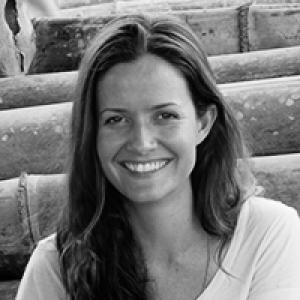


Having spent the first fourteen years of her life in Bali and the following fourteen in the United States, Elora left her position as the sole print designer at Donna Karan International in New York, returning to Bali to found Ibuku, an international design/build team providing fully functional homes and furniture made from natural substances allowing the occupants to live in an authentic relationship with nature. Her key realization was that with the right nurturing, Asia’s creative minds, skilled hands,growing global perspective and unique natural materials will provide the force for positive change in our global future.
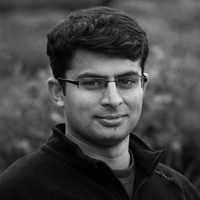


Kalyan Varma is a wildlife photographer and filmmaker specializing in environmental issues in India. He is a freelancer with many of the world’s leading magazines and channels like National Geographic and BBC.
He has co-founded India Nature Watch, the largest online community of wildlife photographers, and also shares his knowledge of photography and wildlife with people in various platforms.
Kalyan is a BBC earth explorer, and freelances with BBC Natural History unit and National Geographic Channel. His work has appeared in many publications worldwide, including National Geographic, BBC Wildlife, GEO, Smithsonian, Lonely Planet and other magazines.
WEBSITE: Kalyan Varma Photography
BBC DOCUMENTARIES: Mountain of the Monsoons, Million Snake Bites
NATIONAL GEOGRAPHIC DOCUMENTARIES: Secrets of Wild India
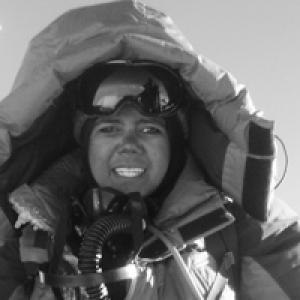


In May 2009, Krushnaa Patil became the youngest Indian woman to successfully climb Mount Everest. Patil was also the first Indian woman to climb the highest peaks in Antarctica, South America and Europe, and has successfully climbed the highest peaks on six of the seven continents. Patil is currently pursuing her MA in Political Science from Pune University.
Patil started climbing in 2007 by doing mountaineering courses from the Nehru Institute of Mountaineering in Uttarkashi, Uttrakhand. In 2008 she climbed Mt. Satopanth (7075 mtrs.) in the Garhwal Himalayas, becoming the youngest person in the world to have scaled it at 18 years. In May 2009 Patil climbed Mt. Everest, becoming the youngest Indian girl to do so. She followed that up with the 7 Summit quest, which is to climb the highest peak on every continent. Patil was the first Indian woman on the highest peaks in Antarctica, South America and Europe. She was on Mt. Mckinley in North America in May 2011, but had to turn back. She has successfully summitted all 6 other peaks.
Patil has also been a part of a Cycling rally with WANI (Women Adventure Network of India) from Kolkatta to Kanyakumari (3000kms) in Feb 2011. She is keenly interested in rafting, paragliding, rowing, and horse riding. Patil is currently pursuing her MA from Pune University in Political Science.
PERSONAL JOURNEY:
I started climbing to get out of the city. It was claustrophobic, and the mountains gave me time, space, and the openness to think how I wanted to, to realize things that I didn’t feel or know in this apparently real world. In society emotions have a background of society pressure, of pre-conceived notions, and of traditions, which are sometimes mindlessly passed on. But in the mountains I fell in love! I could dream of anything and I could do everything. There were no boundaries, no heights! I climbed as much as I wanted and I dreamt even more. Everest was not a dream though, just the mountains were. I wanted to climb, it didn’t matter what. Everest seemed like the next logical step. For me it was just another mountain, one of my firsts! My journey had just begun! And love can be painful, we just don’t realize that when we start enjoying it. Mountaineering is extremely painful, but it’s just exactly twice as much fun. I’ve climbed in different parts of the world, but being extremely biased, I think the most peaceful place is the Himalayas. And I know you do think differently in the mountains!
WEBSITE: The Burning Face
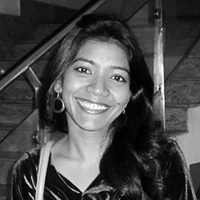


Madhumita Halder is the founder of MadRat Games, creators of the World’s first Indian Language word game – Aksharit (www.aksharit.com). She graduated in Computer Science from IIT Bombay and being an artist at heart, worked for a FX studio. However her creative energies not finding room for expression in the corporate world, she chose to work with children. She subsequently taught middle school children at an alternate education center for 4 years.
She explored science through games, play and activities with the children. That’s when the tremendous potential that Play had in learning became abundantly clear. With the vision to unleash this potential that Play holds to engage learners through fun, she co-founded MadRat Games. Their flagship game Aksharit is now ready in 11 major Indian Languages and has been adopted by more than 2500 schools across the country. Nokia, Intel and Google have partnered with MadRat Games and launched Aksharit on half a million devices.
PERSONAL JOURNEY
By my first job I had everything that I had learnt is needed for contentment, yet I felt lost and a search for my purpose in life began. As the question became intense, disillusionment grew and at this time a friend advised me to read the Bhagwad Geeta (which honestly sounded clichéd then) and it talked about how our self brings in emotions and prejudices to our sensory experiences and I knew a switch in me had turned on. I suddenly saw the world for what it was, the societal conditioning dropped and my exploration began.
WEBSITE: MadRatGames
WORKS
Madhumita writes the Science column called My Toy Factory for the HOOT, which is the largest children’s magazine in India



Mohamed Ali Niang is the founding CEO of Malo Traders, a social venture based in Mali. Mohamed’s mission is to combat extreme poverty and malnutrition by amplifying the income of smallholder rice farmers while simultaneously providing fortified rice to malnourished consumers at an affordable price. Malo Trader’s first facility will produce enough fortified rice in its fifth year to meet the annual needs of 280,000 Malians.
Niang (Chief Executive Officer) graduated from Temple University August 2011 with a Bachelors in International Business/Entrepreneurship and minors in Economics. He holds a Master’s degree with specialization in International Management and Finance from le Centre d’Etude Franco-Americain de Management. He was part of the winning team at the 2010 Center for International Business and Education Research (CIBER) International Case Competition and also received the 2010 Sol Tutelman Memorial Prize from Temple University, an award given to the student achieving the highest standards in the field of entrepreneurship. He was also honored with the Harry Halloran Social Entrepreneurship Award and the prestigious Temple’s Diamond Award, the most outstanding award a student can receive. Niang is an Unreasonable Institute and Echoing Green Fellow.
Niang interned at a diverse organizations dedicated to social change and poverty alleviation including the UN Food and Agriculture Organization in Niger, the Women’s Opportunity Resource Center in Philadelphia, and the Program for Appropriate Technology in Health (PATH). During these internships, Niang developed valuable experiences and insights into the agriculture and nutritional sector, microfinance, and project management. He worked as an Undergraduate Consultant for the Sustainability in Risk Management Team at Fox-SBM Enterprise Management Consulting. Niang is especially proud of his role in designing and implementing a comprehensive marketing plan (TV, radio, written press) for selling 11,000 clean cooking stoves in 2008 while working for Tissina Ltd., a medium size Malian company specialized in green products.
He is currently serving as founding CEO of Malo Traders a social venture whose mission is to combat extreme poverty and malnutrition by 1) paying rice farmers a living price, 2) minimizing post-harvest losses by at least 10% with high-efficiency processing equipment, 3) fortifying rice with vital minerals and vitamins using GMO-free and culturally appropriate technology, 4) creating the first brand of Gambiaka (a Malian rice variety) that adheres to international export quality standards, while 5) creating a “closed loop” or “cradle-to-cradle” system by producing biochar for organic fertilization, rice bran oil for cooking, and animal feed. Malo Traders was awarded the Judges’ Choice Prize at the University of Washington’s 2010 Global Social Entrepreneurship Competition and the 2010 Innovative Idea Competition at Temple University. In April 2011, Malo Traders was awarded first prize in the Social Venture category at the Pace University Pitch Contest. We concluded the month of May by winning second prize at Temple University’s Be Your Own Boss Bowl and the Dell Social Innovation Competition bringing in $35,000 in cash.
PERSONAL JOURNEY
A few months after the 2008 hunger riots, I accompanied a delegation of West African dignitaries to Mali’s biggest rice growing region. The region had abundant land and water resources as well as committed farmers. But, I saw hardworking rice farmers go hungry as a result of inadequate technological support and commercialization opportunities. This experience compelled me to move beyond just empathy and volunteerism and towards building a social venture that will make hungry farmers’ an oxymoron and ensure they are capable of producing a product that will allow them to make decent livings and contribute wealth and health of the nation.
WEBSITE: Malo Traders
VIDEOS: Unreasonable Institute, Unreasonable TV: Episode 6
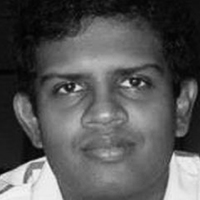


Nayana Somaratna is a doctor, programmer and entrepreneur. While still a medical student, he founded his own outsourcing company, completed another degree in IT, and taught students how to program. His vision is to make medical education entertaining, inexpensive and accessible to doctors and medical students via the medium of mobile phones.
Somaratna wrote his first line of code when he was just seven. A self-taught programmer, he went on to clinch a Gold Medal at the International Olympiad in Informatics in 2001. Whilst a student himself, he spent his weekends teaching school children how to program. Later on, he taught quite a few medical students as well. He also founded an outsourcing firm specializing in mobile and web applications, which helped fund his way through college.
After obtaining degrees in Medicine and in Information Technology, Somaratna left his medical practice to follow his passion of becoming a full time entrepreneur. His startup Medical Joyworks aims to make medical education entertaining, inexpensive and accessible to doctors, medical students and other healthcare professionals, via the medium of mobile phones.
Their first application “Prognosis: Your Diagnosis” uses a cartoon style narrative and gaming techniques to teach clinical medicine in a simple and entertaining manner. Prognosis has been the #1 free medical iPhone app in the United States and currently is a top 50 app in both the iPhone and Android application stores, with over half a million users worldwide as of late 2011.
PERSONAL JOURNEY
My journey through university showed me that both medicine and IT are taught in a similar manner – via lectures, tutorials and practicals. However, there are enough and more external resources to make learning IT fun – competitions, puzzles and interactive animations, just to name a few. On the other hand, most external resources on medicine were in a similar format to internal material and about as dull. Once I graduated, I wanted to change this for the better.
WEBSITE: Medical Joyworks, Prognosis: Your Diagnosis



Nida Mahmood is a self taught artist and trained designer from the National Institute of Fashion Technology (NIFT). Indian Kitsch being her muse and forte, Nida’s collections at WIFW met with rave reviews, critical appreciation and commercial success. Hailed as the Queen of Indian Kitsch by the media, she travels extensively for fashion and art shows, talks, seminars and has an incorrigible wanderlust for everything in Technicolor.
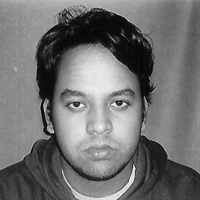


Nikhilesh Das was awarded the fifth National Grassroots Innovation Award by the President of India, Smt Pratibha Patil, for his innovative research on controlling oil pollution in water. A student of Cotton College (BSc in Physics), Das aims to pursue a career in nuclear physics and bring the spirit of scientific innovation to students across India.
Das has been keenly interested in science since childhood. When he was just in class six he made an herbal repellant for cockroaches, which was quite effective. Throughout his school years he represented his school in a number of science exhibitions, debate, quiz and speech competitions, and won many prizes at the state level. Das invented an innovative solution to control oil pollution using waste products. Through experimentation, Das discovered that human hair, bird feathers, and sawdust are all 95% effective at removing oil from water in clinical trials.
Das submitted his proposal to the NIF (National Innovation Foundation), and in 2009 they selected his idea for the national level Science Exhibition. They also recommended it for the highly prestigious National Students Award. Das won the competition, and President Smt. Pratibha Devi Singh Patil of India presented him with the award. In 2011, NIF and Das applied to the Government of India for a patent on his inventions.
Das is currently pursuing a degree physics from Cotton College Guwahati.
PERSONAL JOURNEY
When I traveled to New Delhi to receive the National Student’s Award from the President of India, I came in touch with some of the most fascinating people I have met in my life–the other innovators who were awarded by NIF for their outstanding works on Science and Technology. I was moved by seeing those people, the majority of whom were college and school dropouts yet had made some of the most fascinating things I’ve ever seen.
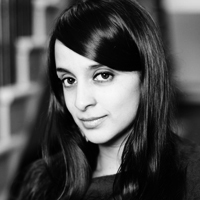


Composer Reena Esmail’s works have been heard in performances and festivals across the United States and Europe. She holds degrees from Juilliard and the Yale School of Music, and is based in New Delhi for the 2011-2012 academic year on a Fulbright-Nehru Scholarship studying Hindustani classical music and exploring the integration of Indian elements into the music she writes.
Esmail’s works have been heard in performances and festivals in the United States, Canada and Europe. She holds a bachelors degree in composition from The Juilliard School, and has studied composition with Susan Botti, Christopher Rouse and Samuel Adler. She has won many awards including two ASCAP Morton Gould Young Composer Awards. Esmail recently completed a MM, Composition at the Yale School of Music, where she was a student of Aaron Jay Kernis, Christopher Theofanidis and Martin Bresnick.
As a pianist, Esmail was a winner in the MTAC-WLA Chamber Music Competition, and performed chamber music with members of the Los Angeles Philharmonic. She has studied violin with Ella Rutkovsky-Heifets, and has sung with the New Amsterdam Singers and C4. She has also worked with a number of Indian classical musicians, including Carnatic singer Shobana Raghavan, and Hindustani singers Priya Kanungo and Mosami Shah. During the 2010-11 season, she was the conductor and arranger for Yale’s Hindi a cappella group, Sur et Veritaal, and still continues to write their arrangements.
Esmail was on the composition faculty at Manhattan School of Music Precollege from 2008-2011, and was also on the theory and ear training faculty there from 2006-2009. Both her composition and piano students have placed in state and national competitions.
The 2010-11 included premiers of many of Esmail’s recent works including her Piano Quintet, commissioned by the Norfolk Chamber Music Festival, her new work Aria for the Yale Philharmonia and Hindustani Classical singer Meena Shivaram, White Key, her large work for choir on the text of poet Carol Muske-Dukes which will be premiered by the Yale Camerata, Asterion in the Tropics, a commission from the Haverford College Choir and Tian Hui Ng, with new poetry by Edgar Garcia, a new work for flute and percussion, commissioned by Duel, a new chamber work commissioned for the Chamber Music Conference East in Bennington, VT, and a scene from Meera, an opera in the Hindi language about the life of saint-poet Meera Bai.
Esmail is a recipient of a Fulbright-Nehru grant for the 2011-2012 year and currently lives in New Delhi, India, where she is affiliated with the Faculty of Music and Fine Arts at Delhi University, and studies Hindustani vocal music with Gaurav Mazumdar.
PERSONAL JOURNEY
As a first generation Indian-American, I moved to India this past August for a year on a Fulbright-Nehru scholarship to study Hindustani classical music. As I simultaneously absorb the culture, the language and the music of India both through my directed studies and through everything around me, I have been constantly reevaluating my own identity and my relationship to my cultural heritage, both musically and personally. Every day here has been a gift.
WEBSITE: Reena Esmail
BLOG: Reena in India
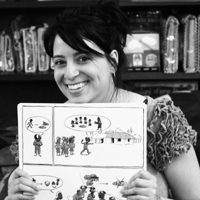


A humanitarian and social innovator, Selene Biffi is the founder of Plain Ink, a social enterprise producing free, educational comics for children and communities in India, Afghanistan and Italy. Prior to that, she founded Youth Action for Change, a non-profit, inspiring and training young people in 130 countries for free to become active agents of change.
At age 22, with only 150 Euro, she conceived and launched Youth Action for Change, a global, youth-led organisation harnessing the power of ICTs to inspire and empower young people worldwide to become active change makers in their own communities. Through its peer-to-peer, free online courses, YAC trains youth in some 130 countries in field such as sustainable development, human rights, water access and many others. The first organisation of this kind, YAC has trained about 2,000 young people and has reshaped the field of youth empowerment and participation. More recently, YAC has launched two unique ventures: Forgotten Diaries – the first platform training young people in neglected conflict zones such to become war reporters and act as peacebuilders in their communities – and Young Innovations Europe, a magazine showcasing youth-led best practices in politics, economy, academia, science, art and others.
After a six-month stint if Afghanistan, Biffi created Plain Ink, a social venture that produces and distributes free educational comics teaching skills in health, agriculture and others to children and communities in India and Afghanistan, giving local people a say in their own development. To support its programs overseas, Plain Ink produces and sells unique children’s books in Italy.
Biffi has worked with Amnesty International and several UN agencies in the past, where she has also been elected to run the Major Group on Children and Youth at the UN Commission on Sustainable Development. Moreover, she has managed humanitarian projects in 10 countries and has contributed to national and international youth participation policies, articles and books.
She has been a consultant, trainer and speaker for organisations the likes of the Council of Europe, OSCE, World Bank, Oxfam, Columbia University and Microsoft.
She regularly writes about ICTs for development and social innovation, and her work has appeared in WIRED and The Washington Post.
For her work and impact, she has received over thirty awards and fellowships, and in 2009 she has been named a ‘Young Global Leader’ by the World Economic Forum. She has also served as ‘Social Sector Ambassador’ for the Italian Minister of Youth Affairs, On. Giorgia Meloni, and is currently the ‘Italian Ambassador’ to the European Year of Volunteerism of the European Commission.
She holds a Bs in International Economics and Management from Università Bocconi (Italy) and a NOHA Master in International Humanitarian Action from UCD (Ireland). She also holds diplomas from INSEAD Business School (France) and Harvard University (US).
PERSONAL JOURNEY
Through my work with NGOs I have come to see how education can shape lives and communities. In 2009 -2010 I worked with the United Nations in Afghanistan to draft a visual manual for children. There I witnessed extreme poverty and a general feeling of hopelessness. However, in a remote village a group of schoolgirls shared their dreams with me: despite the fact that their school had no blackboards or even teachers, they wanted to become engineers, doctors and teachers themselves. They desperately wanted basic education, “to be of help to their community and to help the village escape poverty”. These young girls inspired me, and my experience of meeting them prompted me to start Plain Ink.
WEBSITES: Plain Ink, Youth Action for Change, Forgotten Diaries, Young Innovations Europes
INK BLOG PIECES: Fellows Insights/February 6, 2012
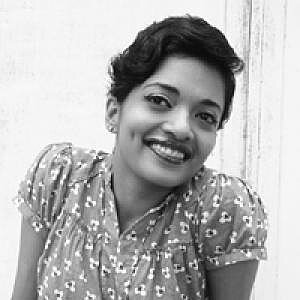


Suman Sridhar is a singer, actor and songwriter. She forms one half of the contemporary music duo, Sridhar/Thayil. Rolling Stone India magazine calls them “two of the most uninhibited people that ever came together to play with music.” Suman has performed at the Great Escape Festival (UK), Galle Literary Festival (Sri Lanka), Southbank Centre (UK), National Centre for Performing Arts (Mumbai), Prithvi Theatre festival (Mumbai) and more.
Sridhar is a singer, actor, songwriter and producer. Jeet Thayil and her form the contemporary music project, Sridhar/Thayil. S/T was named one of 9 Artists to Watch in India by Rolling Stone Magazine and awarded the Jack Daniel’s Rock Award for emerging act of the year in 2009. Sridhar has been described as “one of those rare singers who combine an old-world voice with a very contemporary sensibility.”
Sridhar grew up in Mumbai with Indian classical music in her family, and earned an undergraduate degree in western music from Rutgers University, New Jersey, USA. Her background ranges from singing in classical choirs to jazz and contemporary ensembles, cabaret and musical theatre across the NYC area and India. Her discography includes appearance on independent albums Violet Samudra (Earth Tones Music, NYC 2005), Brown Circles (Brian Bond, NJ 2006) and soundtracks to Hindi feature films ‘404’ and ‘Shaitan’ amongst others. Sridhar co-wrote, co-produced and performed in original musical productions Yoni Ki Baat (New Jersey, 2006) and The Flying Wallas: Opera Noir (Mumbai, 2009).
Sridhar’s on-stage collaborations include The Window Seat, the Louis Banks quartet, Noush Like Sploosh and Dr Das of the Asian Dub Foundation. She has performed at the Great Escape festival (Brighton, UK), Jazzmandu festival (Kathmandu, Nepal), Southbank Centre (London, UK), Galle Literary Festival (Sri Lanka), National Theatre of Performing Arts (Mumbai), Prithvi Theatre Festival (Mumbai) etc. Her debut album with Sridhar/Thayil is forthcoming.
I was fourteen years old when my family moved from India to the States. Exiting JFK airport, it felt like I was entering the future- the wind hit my face with interstellar speed, I could only discern the whizzing cars by the trail of light they left behind. I was teleported from an all-girls Catholic school in a Bombay suburb to east coast carpeted high school hallways where sex-drugs-guns was the word of the day. The graffiti on the walls began to blur the pan spit in my memory, and ‘galat’ was replaced by ‘grime.’ My neighbour handed me my first jazz record- Verve’s ‘Ultimate jazz’ collection. It was okay to be dark, it meant you could sing and run- the two activities that belonged to the third world, to the past.
WEBSITE: Sridhar/Thayil